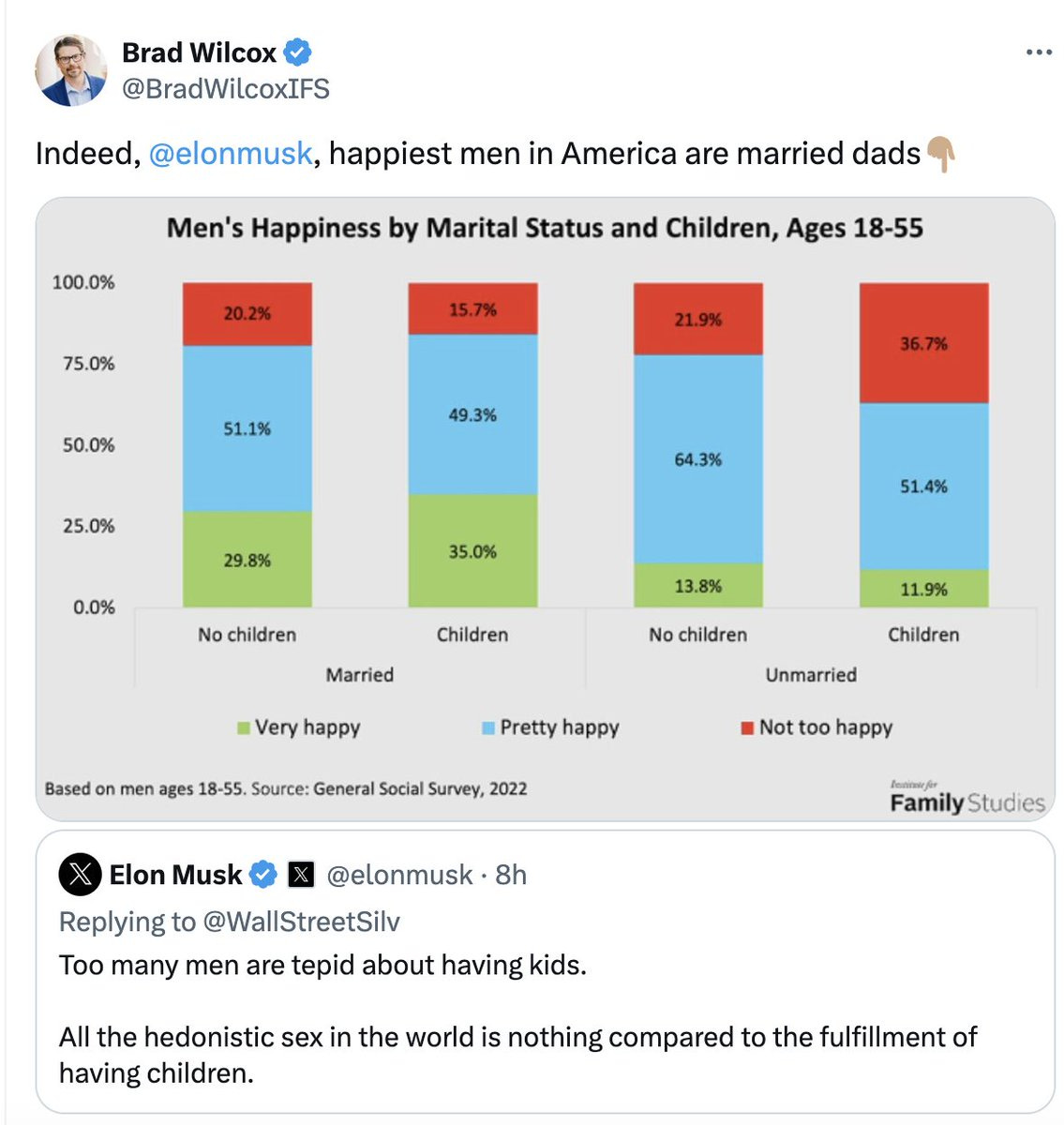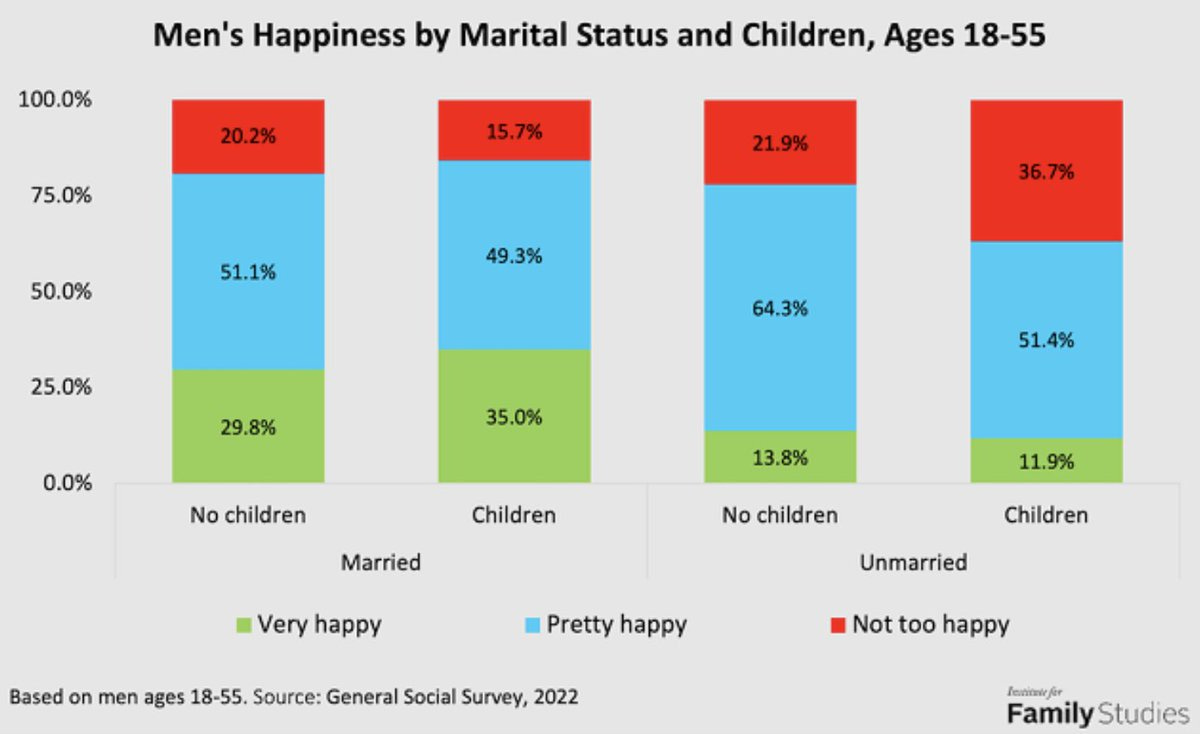Do Children Make You Happy?
Signs point to "it's complicated."

Elon Musk, who as 11 children with three different women, thinks that “too many men are tepid about having kids.” He wrote on Twitter that “all the hedonistic sex in the world is nothing compared to the fulfillment of having children.”
To which conservative professor Brad Wilcox, who often writes in encouragement of marriage and childbearing, agreed, saying that Elon is right: the “happiest men in America are married dads.”
Unfortunately, the unhappiest men in American are also dads, they’re just the unmarried ones. Which suggests that it’s perhaps not children alone that are the silver bullet to a happy life (I will leave aside here the irony of a conservative professor cheering on the pro-natalist views of a man who has impregnated three different women he either divorced or never married — 11 times).
Happiness data can be challenging to parse, especially when looking at demographic groups and then drawing conclusions about causation. Take this data for example:
Looking only at marital status, children, and happiness, the happiest men are indeed married with children, while the unhappiest are unmarried with children. Men who are married but don’t have children are happier than unmarried men without children. To look at this graph and conclude “children make men happier” would be ridiculous. But it would also be questionable to conclude that marriage itsel makes men happier, even though both sets of married men — the dads and non-dads — are happier than the unmarried ones. Why? Because this data could also show that happier men are more likely to get married. In other words, marriage may not be the cause of happiness, but the result of it.
Or marriage might in fact be happiness-producing! Or happiness may be related to financial stability and / or educational attainment, and financially stable college-educated people are more likely to get married. Or, I dunno, maybe very stupid people are happier, and very stupid people are also more likely to get married.
I suspect it’s a combination of all of the above (except for the stupid-people theory): Better-adjusted people with more financial resources are happier, and they are also more likely to find a comparably well-adjusted, happy, and stable partner who wants to marry them, and that mostly creates a virtuous happiness cycle. Perhaps those happier couples are more likely to take the plunge and have children, rather than having children and finding it happiness-making.
The numbers on unmarried men with children are, to me, the most striking. Part of this may stem from divorce, which is a pretty unhappy-making process, especially if there are kids involved. But (a) a whole lot of unmarried men with children are not in fact divorced but simply never married, and (b) if being a divorced parent were causal, we’d expect to see a similar gap among unmarried women with and without children, but we don’t.
Here’s the same data for women:
Keep reading with a 7-day free trial
Subscribe to Jill Filipovic to keep reading this post and get 7 days of free access to the full post archives.


